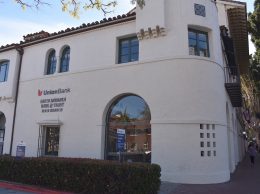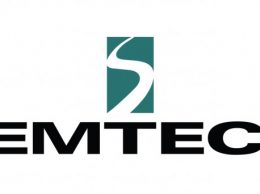Global dealmakers zoom in on region, shrug off slow growth politics

We are about to embark on another economic forecast season — the fifth since the financial crisis hit in 2008.
And you can pretty much guess what the experts will say: slow growth for the region with a chance for a tourism and agribusiness rebound. There will be great skepticism about the Federal Reserve and its bond-buying program and from some corners a pitch for a combination of more housing, more oil-and-gas drilling and/or more immigration.
These are easy comments for those who don’t have to make a living based on whether or not their forecasts are accurate. But how does the tri-county region look to people who have to put capital at risk based on their forecast?
I’d say the answer is pretty darn good.
We got a taste of just how good the Central Coast region might look to a buyer in Tokyo or Amsterdam, Zurich or Seoul, this week when ABB, one of a handful of giants in the business of power systems and controls, bid roughly $1 billion for Camarillo-based Power-One.
Once a maker of fairly pedestrian power supplies for PCs and other devices, Power-One has remade itself in recent years by becoming a world leader in providing direct current to alternating current inverters for the solar and wind power industries.
Some people think that the bid by ABB, at something like $6.35 per share, will be superceded by a higher offer, possibly by GE or Siemens, ABB’s leading rivals in the power game.
Regardless of the eventual outcome of the Power-One deal, consider that right now another Ventura County company, Westlake Village-based shoemaker K-Swiss, is awaiting completion of a takeover from Korea-based E-Land. A shareholder vote is expected as this edition of the Business Times hits the streets on April 26.
In just the past few weeks, we’ve seen Union Bank taking the final steps toward taking over Santa Barbara Bank & Trust in a deal valued at $1.5 billion. Union, as we’ve explained previously, is the U.S. arm of Mitsubishi-United Financial Group of Tokyo and its shares trade on the New York Stock Exchange as MUFJ.
Going back further into the past, we saw Ventura County Business Bank bought up by Royal Business Bank, whose owners are Chinese families with a foothold in the specialized business of foreign trade lending in the greater Los Angeles area.
And the second-largest banking transaction in the region is the $874 million purchase of Mid-State Bank & Trust by Dutch agribusiness giant Rabobank.
So, while the economists see a slow-growth region with not a lot of change afoot, those on the ground floor see a different picture. In the banking sector, they see California as relatively stable place to deploy capital, despite our high-profile budget problems and the bankruptcy of a few ill-managed municipalities.
In the industrial sector they see companies such as Power-One that have made the transition from old-economy products to 21st century technologies such as wind and solar power. In the design sector, they see a chance to take K-Swiss talent and find global niche markets.
It may even be that to the Japanese, California’s byzantine workplace regulations are actually less onerous than what you might find in the Eurozone or Japan.
The bottom line is that many people around the world see our creaky, clanking and somewhat dysfunctional U.S. government lurching its way toward a stronger currency. The Europeans and the Japanese have not yet righted the fiscal ship.
A strengthening currency, a stable economic platform and the ability to innovate and reinvent is not something that you find in many places around the world. Keep that in mind as you try to make dollars and sense out of this year’s forecast season.
• Contact Editor Henry Dubroff at [email protected].











